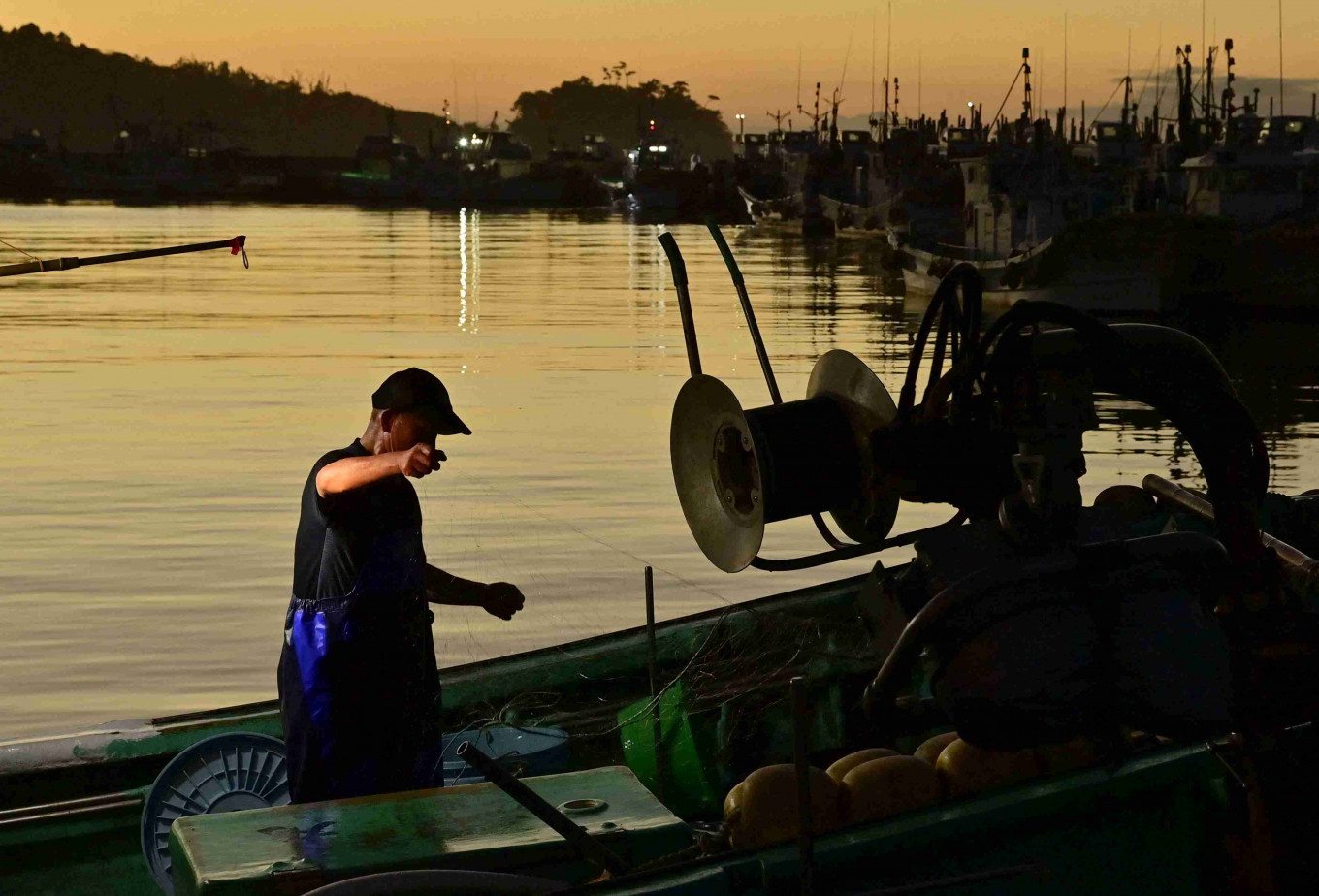Popular Reads
Top Results
Can't find what you're looking for?
View all search resultsPopular Reads
Top Results
Can't find what you're looking for?
View all search resultsNo problem with the safety of seafood caught in Japan
To ensure the safety of the water, Japan has started multi-layered monitoring with the involvement of the IAEA.
Change text size
Gift Premium Articles
to Anyone
I
am obliged to address some concerns regarding Advanced Liquid Processing System (ALPS) treated water as some Indonesians seem to be confused by disinformation and fake news. Simply put, Japanese seafood remains safe to eat.
On Aug. 24, Japan started discharging ALPS treated water from the Fukushima Daiichi Nuclear Power Station of Tokyo Electric Power Corporation (TEPCO) into the sea as part of its efforts to move forward with the decommissioning. Japanese experts had comprehensive discussions on the handling of ALPS-treated water for more than 6 years. After that, the International Atomic Energy Agency (IAEA), the world’s authority on nuclear-related issues) conducted a nearly 2-year review of the safety of ALPS-treated water from a neutral and expert standpoint based on scientific evidence.
On July 4, the IAEA Comprehensive Report concluded that (i) the approach to the discharge of the ALPS treated water into the sea and associated activities are consistent with relevant international safety standards, and (ii) the radiological impact on humans and the environment is negligible. The report also states that additional review and monitoring by the IAEA will continue after the discharge starts.
ALPS treated water is sufficiently purified until the concentration of radioactive materials other than tritium is well below the regulatory standard, and then is further diluted with the seawater before it is discharged. After the dilution, the concentration of tritium will be 1/40 of the regulatory standard and 1/7 of the World Health Organization drinking water standard, and the concentration of radioactive materials other than tritium will be less than 1/100 of the regulatory standard.
Tritium is a radioactive material that exists in nature and can be found in rain, sea and tap water as well as in our bodies, but does not accumulate in the human body.
While other countries also discharge tritium into the sea in compliance with their own domestic laws and regulations, the amount of tritium in ALPS-treated water is smaller than the amount of tritium discharged from many nuclear power plants and other facilities in other countries. Therefore, the discharge of ALPS-treated water into the sea is based on scientific evidence and consistent with international practices.
To ensure the safety of the water, Japan has started multi-layered monitoring with the involvement of the IAEA, and should a problem be detected during this monitoring process such as detection of radioactive concentration that exceeds the standard, Japan will take appropriate measures as planned, including immediate suspension of the discharge.
We appreciate that many countries in the world expressed their support and understanding towards Japan’s efforts and its commitments explained above. In the case of Indonesia, the Nuclear Energy Regulatory Agency (Bapeten) issued a statement on Aug. 30, concluding that “this discharge of ALPS treated Water will not have a negative impact on humans or the environment as long as the management of the Fukushima Daiichi nuclear power plant can ensure that the tritium concentration in the released ALPS treated Water remains below the predetermined limit.”
Please rest assured that Japan will continue to provide necessary information to the international community in a highly transparent manner, based on the scientific evidence and will continue efforts to gain further understanding from the international community regarding the safety of ALPS treated water.
It is encouraging that the increasing number of Indonesian people will plan their trips to Japan for the upcoming autumn and winter seasons. Autumn is a pleasant season in Japan and you will see beautiful mountains and other nature colored with red and yellow leaves.
Winter in Japan is much colder for Indonesian people, but it is also an attractive season because there are many seasonal foods and you can enjoy yourselves with wonderful winter activities such as skiing and onsen (hot springs).
When you visit Japan, you can enjoy safe and delicious seafood products in the same way you always have.
***
The writer is the ambassador of Japan to Indonesia.










